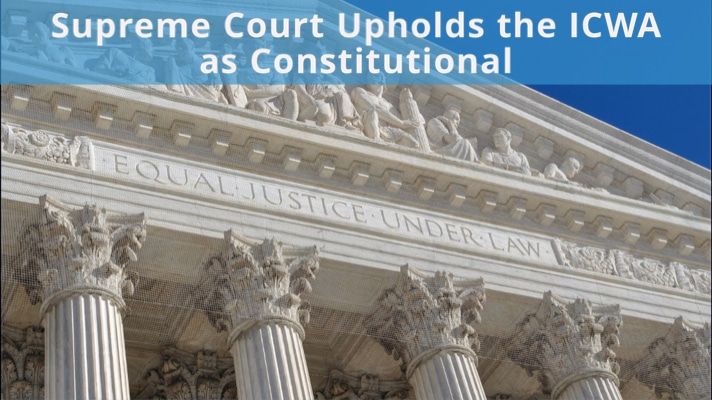Today, the United States Supreme Court stood for what is just for Indian Country as the ICWA (Indian Child Welfare Act of 1978) was upheld by a 7-2 vote. The ICWA recently came under attack in Haaland v. Brackeen (2023), a case brought by the states of Texas, Louisiana, and Indiana, as well as a number of individual claimants, seeking to establish the ICWA as unconstitutional.
The ICWA is a 45-year-old federal law that protects the well-being and best interests of Native children, their families and their communities. The ICWA prevents the arbitrary removal of Native children from their homes by public and private agencies. The ICWA recognizes Native families and tribal communities as the dominant authority for determining how to protect their own children. Recognized by child welfare experts as the gold standard in child welfare practice, the ICWA has for decades helped tens of thousands of Native children and families remain intact, as well as find fairness and healing in state child welfare systems. The ICWA was established in response to the United States government’s long historic campaign of destruction and erasure of Native peoples and communities, which in part, included the forceful removal of Native children from their homes and placement in non-Native homes without consent or justification. This win recognizes the importance of preserving the culture, communities and existence of Native peoples.









